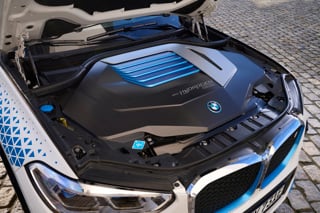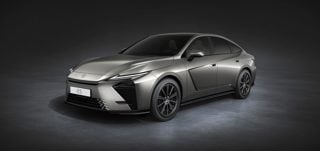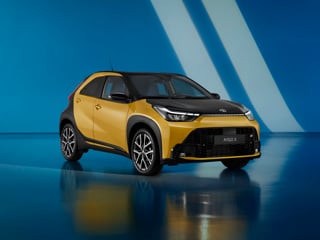Toyota is positioning itself for an assault on the fleet market as it prepares to launch a flurry of new vehicles, each promising low CO2 and high fuel efficiency.
Over the next 18 months, the Japanese manufacturer will bring eight all-new models to market, as well as introducing six major model changes.
A heavy launch plan requires an ambitious sales plan, and Toyota certainly has that.
After a quiet year this year both in fleet and retail, the company is anticipating a five-year surge in sales, culminating in a 5% share of the total market by 2016.
This will mean 125,000 units for Toyota and 15,000 for Lexus, while fleet will account for 51% of the 140,000 total.
Compare that to this year, where the two marques will combine for around 80,500 units, with Toyota ending on around 73,000, down almost 17% year-on-year.
“We’ve got big plans for growth and we’re making a significant investment in making sure we get there,” says Ewan Shepherd, general manager Toyota & Lexus Fleet Services.
That investment is evident in the long list of new product it has planned over the coming year, which starts next month with the revised Avensis.
Fuelled by a 2.0-litre turbodiesel engine producing emissions of 119g/km, Toyota expects the Burnaston-built car to do well in fleet. There will be a 70% focus on diesel powertrains and an expected 64% bias in favour of fleet sales.
Facelifts on other models will follow, before the Prius+ – a seven-seat MPV based on Toyota’s full hybrid Prius – makes its debut in May 2012.
The full hybrid drive system will return fuel economy and CO2 emissions of 65.7mpg and 99g/km respectively.
A month later and the impressive Lexus GS450h, powered by a 3.5-litre hybrid engine producing less than 145g/km, will join the fray only to be quickly followed by the Prius Plug-in Hybrid and the Yaris Hybrid.
“I’m genuinely excited about the breadth and quality of product coming to market,” says Shepherd.
“It’s so important that our corporate customers can be confident that our product range fits with their needs and there’s no reason why they shouldn’t be.
“In addition, our cost of ownership proposition is pretty much unbeatable at the moment and that’s a distinct advantage.
“But we need to effectively communicate how the tax advantages of running a fleet of Toyotas, compares to running one consisting of our competitors’ cars; how it not only saves money for the company, but also effectively gives their employee a pay rise through what can be massive savings in BIK.
“This is exactly why I’m so confident.
"We’ve got a really great range of exciting new cars which will open people’s eyes and minds, while having a very serious individual and corporate proposition that will save either party money.”
However, the Toyota fleet boss is also aware that their success will rely on communicating what the benefits of a hybrid are to a mainly ignorant public.
Shepherd describes it as “re-education” and a part of that plan was put into play at the Toyota and Lexus Fleet Services National Conference, which took place on December 2.
Shepherd says: “Most people haven’t driven a hybrid, but when they do, they’re surprised at how good and easy it is. We just need to make sure they understand the technology and its benefits.”
Since 1997, Toyota has sold more than 3.3 million full hybrid vehicles worldwide, representing more than 80% of all global hybrid sales.
But it isn’t leaving any stone unturned in its attempt to secure even more hybrid sales.
The training of service advisers in its dealer network is being “beefed-up”, with a combination of classroom
courses and e-learning, giving them the required knowledge to field any technical questions.
Meanwhile, a ‘Hybrid Health Check’ will strengthen the dealer proposition, while also helping to protect residuals and aftersales revenues.
Shepherd has also been wooing the leasing industry, getting to know key account managers at the country’s top contract hire and leasing companies.
He concludes: “We simply want to be a company that’s chosen by customers and we want customers to be happy that they’ve chosen us.”






















Login to comment
Comments
No comments have been made yet.